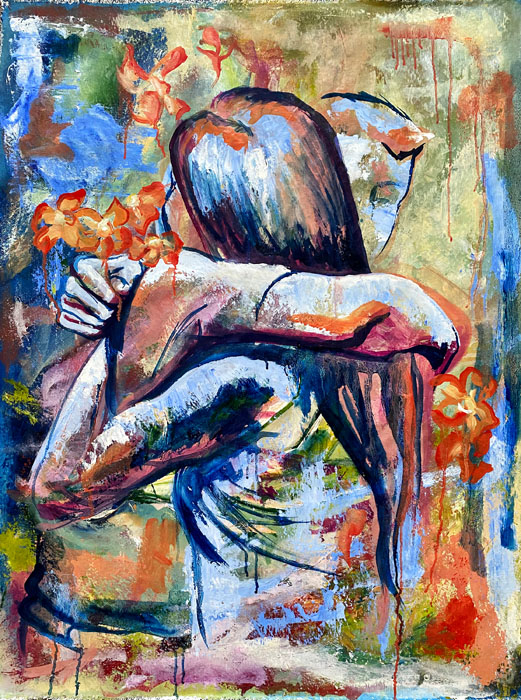Flash Nonfiction
by Yannis Lobaina

On the morning of March 25, 2014, I woke up with my entire body trembling. Very sweaty hands. The day of embarking on a new journey had come. I had waited almost until the expiration of my visa to decide to move to Canada.
Why would I leave Cuba? With this man from such a faraway land? Many questions and a single answer: love. After more than a year of a long-distance relationship, we decided to get married and celebrate our honeymoon in Barcelona. Happily, months later, our little girl Amélie was born. We understood why our paths had crossed. A few months from then, I said yes to the adventure and to be an immigrant. Im-mi-grant, a word that, from the first time I saw it stamped on my passport, always made me cry.
I left behind my mother. The work I loved. My friends, family and my library. Many diaries full of unfinished stories, my colourful homeland. And a large part of me, of my life story, that will remain on the island, locked in cardboard boxes in Havana's darkroom at my mother's house.
Now, I can understand what my family and friends told me about the feeling of emigrating and that state where you are happy with a deep and incomprehensible sadness.
Chris had planned carefully every detail for our arrival. He left our old Volvo parked at the airport with two large bags of winter clothes before going to Havana. The three of us would enter the country together, as we had dreamed.
My arrival at Halifax Airport was very strange to me. The airport was smaller than I had imagined. The red tape of immigration was incredibly fast. A part of it was processed by new machines without any human contact, until the end; smiling officers, who stamped my passport welcoming me.
***
While my husband got the clothes from the car, I looked out at the meters of snow. I wondered how that white and gray landscape would convince me to live in it.
I went to the bathroom with my daughter in my arms, to change. The cubicle was so small that we could barely move. It made me think of those of my Cuba, but it was cleaner. I opened the first bag. I took off my delicate white cotton dress. I stood half-naked under the bright white light. Then, I put on a big gray sweater, black thermal leggings, two pairs of black pants and a big black coat. My eyes could not escape the big gray boots and huge coats.
I felt chilling lightning run through my body. My body began to sweat, a different sweat. I could barely breathe. I looked around. I still had to change my shoes. I took off my beautiful sandals and put on the big gray boots called Canadiana. I hated them. They were ugly and very heavy, heavier than my two suitcases full of books. A big sigh escaped me when I tied the last lace.
Finally, despite all these heavy garments, I left the bathroom almost levitating. I felt as if I was in another person's body while walking to the exit. When Chris saw my upset face, whispered Mon amour, these boots were made for walking in the snow. He said it over and over again until he left us at the bathroom door. And I just nodded and remembered Nancy Sinatra's famous song. Then he said, "Welcome," and kissed my left glove.
Despite my fears, I was full of happiness and dreamed of starting a new life with my husband and our first daughter Amélie. I can never forget that with those Canadiana boots, I took my first steps in these beautiful lands that I now call home.
Note:
Canadiana Boots is part of nine personal essays about Yannis Lobaina's emigration stories. This personal essay developed in The Shoe Project workshops and performances at George Ignatieff Theatre, University of Toronto, March 31 and April 2, 2019.
Appeared in Issue Fall '20
Nationality: Cuban
First Language(s): Spanish
Second Language(s):
English,
French
Das Land Steiermark

Listen to Yannis Lobaina reading "Canadiana Boots".
Supported by:

